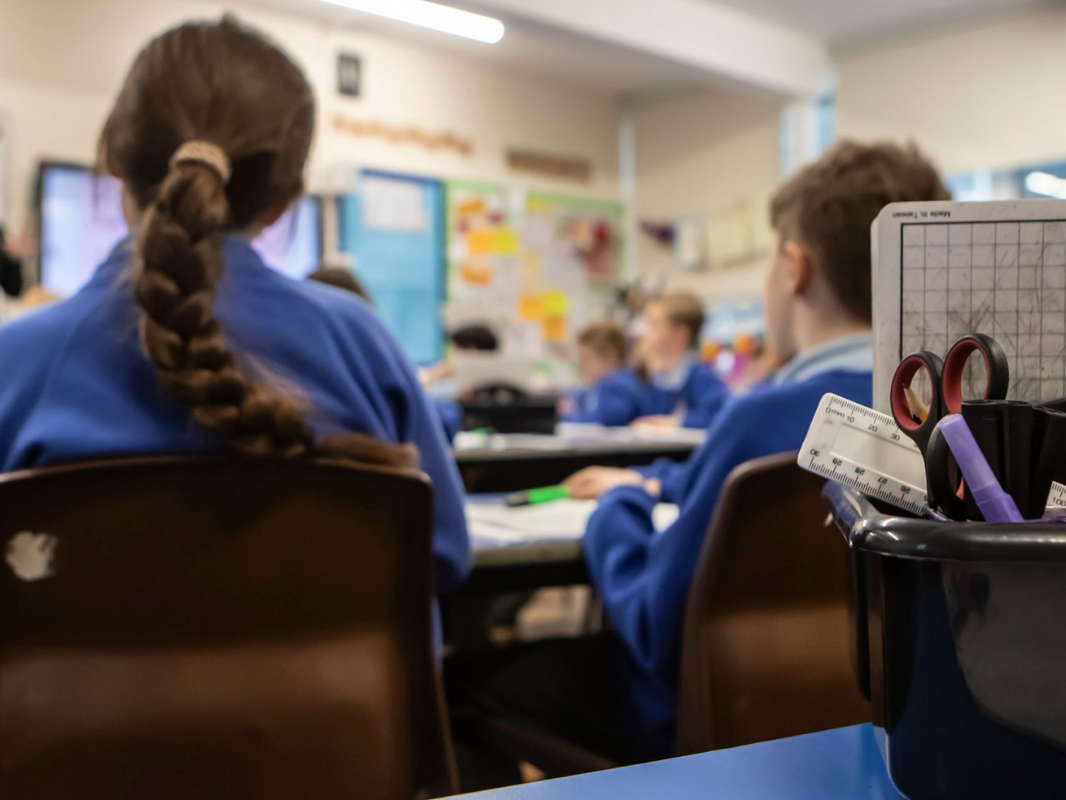
Measles vaccination rates have dropped to their lowest level in a decade, experts have warned.
Parents are being urged to make sure children have had their MMR vaccinations and other routine jabs before starting school.
The MMR vaccine protects against measles, mumps, and rubella. Children can receive their first dose on the NHS at the age of one, and the second dose is available when they are three years and four months old.
Between July and September last year - the most recent figures - just 88.6% of children in England had received their first MMR dose by the age of two, while just 85.5% had received both doses by the age of five.
The World Health Organisation says that 95% of children need to be vaccinated to keep measles away.
Measles is highly infectious and can cause pneumonia, encephalitis (brain inflammation), and damage to the immune system which leaves children more susceptible to other infections.
In rare cases, it can also cause subacute sclerosing panencephalitis (SSPE), which can lead to destruction of the central nervous system, loss of motor control, epilepsy, and death.
Despite this, 48% of parents and guardians of children aged five and under did not know that measles can lead to serious complications.
Potentially fatal disease
The figures, from research commissioned by the Department of Health and Social Care, and the UKHSA, also found that only 38% knew measles could be fatal.
Some 56% were unaware that two doses of the MMR vaccine give 99% protection against measles and rubella.
It is estimated that the introduction of the measles vaccine in 1968 has prevented 20 million measles cases and 4,500 deaths in the UK.
The US CDC says that while rubella rarely causes serious cases in children, up to 70% of adult women may experience arthritis and it can cause serious problems, including brain infections, bleeding problems, miscarriages and birth defects.
Mumps too can result in complications, especially among adults, including inflammation of the testicles, ovaries, breast tissue, pancreas, brain and spinal cord (meningitis).
'Big impact on immunity'
Dr Vanessa Saliba, consultant epidemiologist at the UKHSA, said:
"The MMR vaccine offers the best protection from measles, mumps and rubella which is why we're calling on parents and carers to make sure their children are up to date with their two doses.
"Even a small drop in vaccine coverage can have a big impact on population immunity levels and lead to outbreaks."
Dr Nikki Kanani, GP and medical director for primary care at NHS England, said: "It is incredibly important that all parents and guardians ensure their child is up to date with their routine vaccinations, including MMR, as these vaccines give children crucial protection against serious and potentially deadly illnesses and stop outbreaks in the community.
"If your child has missed a vaccination, please contact your GP practice to book an appointment as soon as you can to make sure they have maximum protection against disease."

 Brighton: A23 Improvement Work To Begin In June
Brighton: A23 Improvement Work To Begin In June
 New Ancient Trade Exhibition To Open At The Beachy Head Story
New Ancient Trade Exhibition To Open At The Beachy Head Story
 Sussex Beaches Win Big In Annual Awards
Sussex Beaches Win Big In Annual Awards
 Police Still Searching For Two Men Over Hastings Fatal Hit-And-Run
Police Still Searching For Two Men Over Hastings Fatal Hit-And-Run
 Pulborough Rapist Has Jail Sentence Extended After Appeal
Pulborough Rapist Has Jail Sentence Extended After Appeal
 Planners Approve Battery Storage Facility In Hooe
Planners Approve Battery Storage Facility In Hooe
 Children’s Charity Launches Campaign To Provide Wellbeing Service at Brighton Hospital.
Children’s Charity Launches Campaign To Provide Wellbeing Service at Brighton Hospital.
 Sussex Air Ambulance Charity Raises £1m To Buy Its Helicopter
Sussex Air Ambulance Charity Raises £1m To Buy Its Helicopter
 New Southern Timetable To Add 5,000 South Coast Seats From Next Month
New Southern Timetable To Add 5,000 South Coast Seats From Next Month
 New Mayor A Leader For ‘Unity And Progress In Brighton & Hove’
New Mayor A Leader For ‘Unity And Progress In Brighton & Hove’